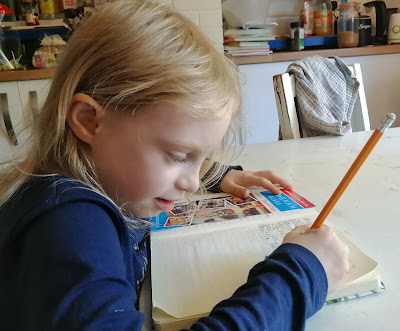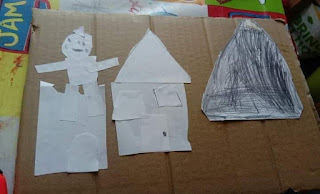The reason behind the lesson
A key cornerstone for teaching the children involves making learning applicable to their lives, giving them a reason to want to do it.
There's nothing worst than an adult in your life saying you have to do xyz 'because you have too, because I say so'.
This rhetoric is infuriating for any child, but I think especially for neuro diverse children who often won't do anything unless it personally benefits them, is worth while expending energy for, or makes sense enough to leave their own world. If you try to avoid this conversation, you can negate a lot of resentment and meltdowns.
I've also learnt to not to interrupt them when their processing, you may as well be talking to the wall. They're not being rude... They're occupied doing essential control damage and resetting themselves.
There are several pathways I use in encouraging the children to achieve their learning potential. I will make it worth their while with incentives/rewards. Every day they unlock their dessert of choice for after their dinner if they've completed a good mornings worth of learning.
Sophia found a book about an owl yesterday, she was so excited because she could read the first page, and loved the illustrations. She asked if she can have a plushy of this owl. I've promised her once she's read the book to me, she'll get her owl.
I'm all about prizes and incentives. The children do not have exams to work for or grades, they get to earn (or unlock as they phrase it) presents and treats. Hard work definitely deserves rewards.
The second way to ensure the children learn and obey my instructions is to take the time to explain the reasoning behind the task I've asked them to do. I've found that if I make a logical argument which they can process, the likelihood of them obeying is greatly increased.
An instruction from us then changes from an arbitrary command, to a logical and reasonable request. We are either asking them to help themselves, or others around them or the environment.
Sophia clicked on to the necessity to reading initially, when she discovered she can learn to read the safe and unsafe ingredients on the back of packets. This way she can go to the supermarket when she's older and read independently from mummy and daddy.
They learnt at an early age how eating certain foods and performing certain habits can prevent headaches, and helps your brain grow and develop. Hygiene habits similarly were taught early to start lifelong routines. They understand the logic and reasoning behind every action in their hygiene regime. They have started to initiate these habits without prompting and the girls encourage Xander to join them with brushing their teeth and washing their hands. Similarly they have learnt certain habits they can easily incorporate into their lives to help save the earth, such as turning off fans, switches and lights when we leave a room. Now a reason has been provided for the task, they are far more successful in remembering to act upon the rules.
I also give them choice, I insist they tidy up a room a night to teach responsibility of caring for their possessions and for them to realise I'm not their servant. They've done this since they were aged two, it started with a bag of toys, and then progressed. We're a team.
I used to allocate a room for them and lately they'd often rebel with tantrums etc as they're asserting their independence. Consequently I sat down with them and said a room in the house must be tided by each of them during the course of the day and they get to choose. This has really calmed the situation down and they now will voluntarily tidy up, thanking me for giving them the personal responsibility of choosing which room they wish to tidy.
There is an unexpected bonus, as they also work as a team, tidying their bedroom and making their beds, as they've decided it looks so much more inviting at bedtime if it's tidy. Win!




Comments
Post a Comment